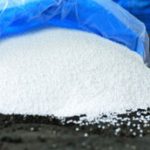 Any living thing on this planet requires the element Oxygen (O2) in particular levels. Humans and animals however, need it more than the plants, since our body metabolism only functions with these 2 molecules of oxygen. When the levels of oxygen start increasing or decreasing, a number of health issues may develop, and sometimes even prove fatal for the individual.
Any living thing on this planet requires the element Oxygen (O2) in particular levels. Humans and animals however, need it more than the plants, since our body metabolism only functions with these 2 molecules of oxygen. When the levels of oxygen start increasing or decreasing, a number of health issues may develop, and sometimes even prove fatal for the individual.
Oxygen is the only source of life for living things, and only pure oxygen can fulfill the basic necessity for a healthy life. Infiltration in this pure form of oxygen leads to many injurious situations, which can cause organ problems and metabolic abnormalities. It is necessary for all living things to breathe fresh air and not polluted or infiltrated air, for survival. The normal levels of oxygen in an individual’s body should be, 95 to 100%. When the body’s oxygen levels are within this range, its cells are healthy enough to carry out the main functions properly. If there are high or low oxygen levels that are recorded, the best thing to do is visit the physician as soon as possible. In the following paragraphs, we will concentrate on the side effects of low oxygen levels in the body, along with its causes.
Body Oxygen Level
The level of oxygen in the human body can be measured in many ways, but the simplest is a blood test. It is commonly known as the Arterial Blood Gases test (ABG). Other methods include testing the oxygen levels through a pulse oximeter, wherein the levels are measured with a light sensor. When low oxygen levels are detected, the doctor may ask you to undergo some more tests to determine the exact cause of the condition. Take a look at what symptoms are shown, when the levels of oxygen are low, and what causes this decrease.
Causes of Low Oxygen Levels in Humans
One very common reason for this abnormality can be hypoventilation, where the levels of carbon dioxide in your body rise decreasing the oxygen levels. This usually happens, when your body metabolism produces extra carbon dioxide at a fast pace due to some mess up in the breathing process.
The intake of oxygen is lesser than the out throw of carbon dioxide, due to which the levels of carbon dioxide can increase, thus, decreasing the levels of oxygen. This can be a result of slow breathing, malfunctioning of the lungs, or a deformity in the chest wall affecting the volume of air. Other causes for hypoventilation can be neurological disorders like anxiety.
When there is no uniformity in the alveolar ventilation in the lungs, there is lack of harmony in the normal gas exchange. This can lead to the disruption in the entire respiratory pattern, and can result in non-functional lungs and low oxygen levels in return.
Another cause can be the capacity of diffusion in the alveoli of the lungs. This is the measure of how smoothly the air or oxygen passes through the alveoli and capillaries. If this diffusion is lesser, it leads to low oxygen levels and respiratory problems. This diffusion may be affected by high or low altitudes, where there is a low oxygen level in the air itself. This can result in lack of oxygen to the brain.
Effects of Low Blood Oxygen Levels
This disorder of low oxygen levels is medically known as hypoxemia, where the person exhibits a number of symptoms of weakness. Take a look, and find out if you ever have experienced these.
Fatigue
Poor digestion
Depression
Memory loss
Acidic stomach
Lung problems
Repeated bacterial, viral, or fungal infections
Overall body weakness
Muscle aches and pains
These symptoms are also noticed during many other illnesses, but medical professionals say that every illness you have is almost increased and worsened by low levels of oxygen in the body. The only way you can improve the level is to breathe properly through the nose (not through the mouth). Certain breathing techniques and exercises can help raise blood oxygen levels. Quit smoking and eat healthy, if you want to stay fit. Simple exercises like walking early in the mornings, and drinking a lot of water can help improve the oxygen levels. If you have a healthy diet and a good lifestyle, low oxygen levels won’t ever bother you, and if they do, I am sure you know what should be done.











RSS